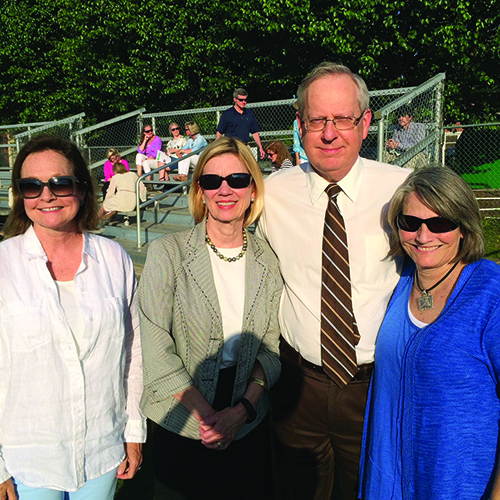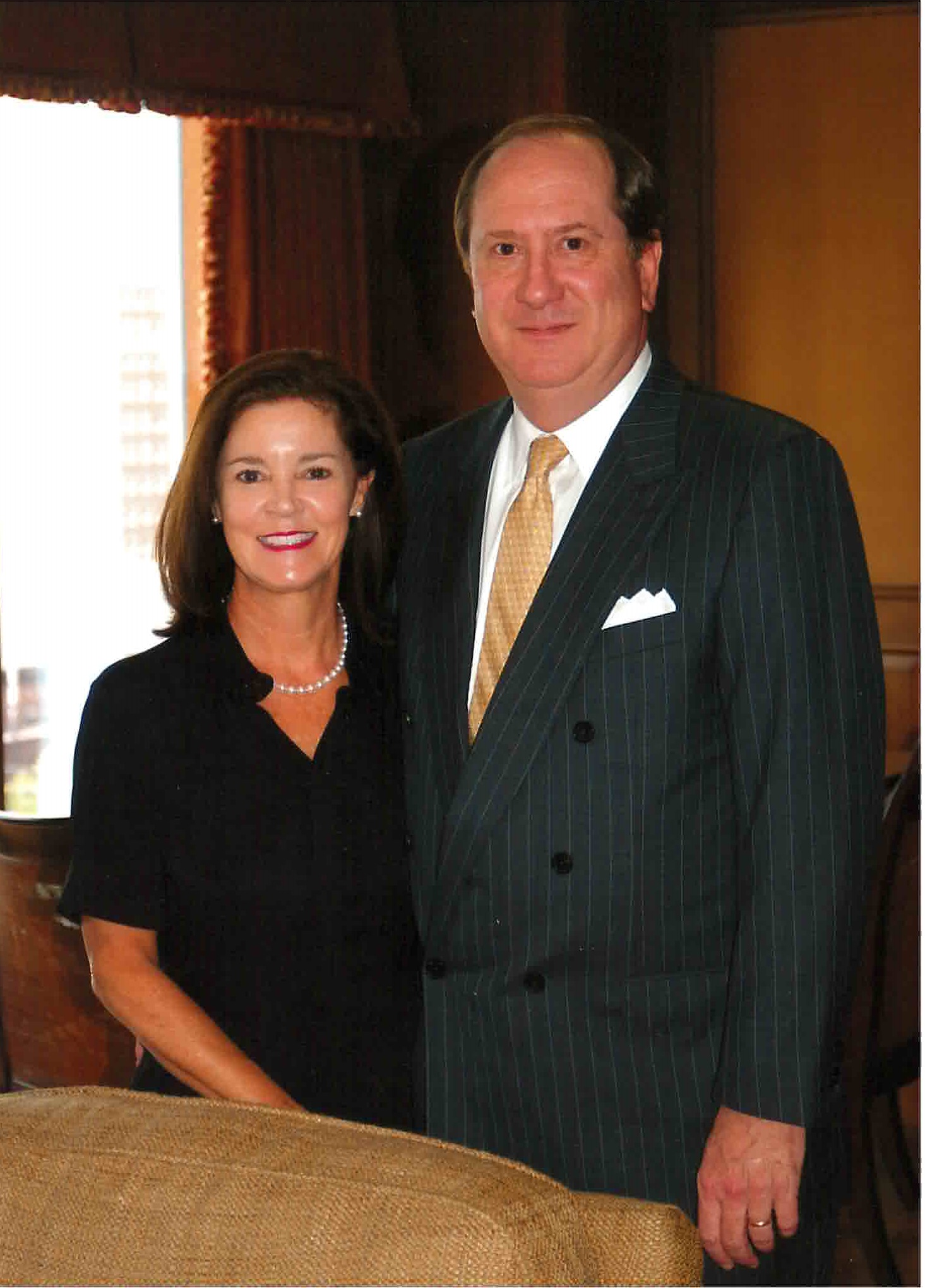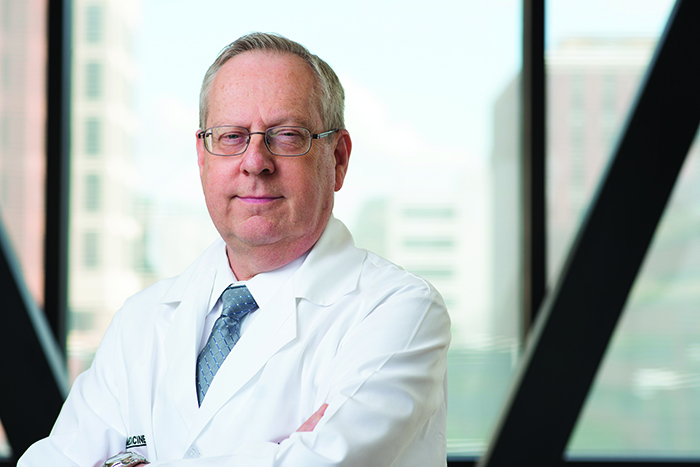 A fundraising effort to advance UAB's Depression and Suicide Program has gotten a significant boost with a $3 million gift.About four years ago, Beth Seibels opened her mouth to speak, but words wouldn’t come out. She couldn’t take part in her favorite pastime, talking and laughing with family and friends, and was robbed of her ability to enjoy life. She knew exactly why: her depression.
A fundraising effort to advance UAB's Depression and Suicide Program has gotten a significant boost with a $3 million gift.About four years ago, Beth Seibels opened her mouth to speak, but words wouldn’t come out. She couldn’t take part in her favorite pastime, talking and laughing with family and friends, and was robbed of her ability to enjoy life. She knew exactly why: her depression.
“People could see despair in my eyes,” Seibels recalls of that traumatic time, which spanned nearly two years in her over 30-year bout with depression. “I don’t think a lot of people understand what depression does to the nervous system. My vocal cords and the muscles in my face were shutting down, making it extremely difficult to speak and smile. I lost so much weight I felt like I was dying. I became suicidal because the anxiety was unbearable and the future looked hopeless.”
 From left to right: Sally Legg, Courtney Brown, Richard Shelton, and Beth Seibels at an event at Crestline Elementary School where Shelton spoke. Seibels’ struggle inspired her friends to launch a $10 million fundraising initiative for the UAB Depression and Suicide Program.
From left to right: Sally Legg, Courtney Brown, Richard Shelton, and Beth Seibels at an event at Crestline Elementary School where Shelton spoke. Seibels’ struggle inspired her friends to launch a $10 million fundraising initiative for the UAB Depression and Suicide Program.
Her friend, Mallie Ireland, encouraged her to make an appointment with Richard Shelton, M.D., a professor in the UAB Department of Psychiatry and Behavioral Neurobiology. Ireland’s family endowed the Charles Byron Ireland Chair of Psychiatric Research that Shelton holds.
“Mallie told me, ‘I heard Dr. Shelton speak, and he just described you,’” Seibels says. “Dr. Shelton was immediately different than the other doctors I had seen. He said, ‘If plan A doesn’t work, I have plans B and C.’ No other doctor had given me that hope.”
Shelton heads the UAB Depression and Suicide Program. It is a cohort of scientists and clinician-scientists developing more effective treatment, prediction, and prevention models in the fields of depression and suicide. Their goal is to reach those patients who have difficult-to-treat depression and provide immediate relief to patients suffering from depression or having thoughts of suicide.
Seibels benefitted directly from this treatment. Her experience not only resonated with Ireland, but it also inspired a group of Seibels’ friends from her prayer group and other circles to launch an initiative to support and promote Shelton’s work. The group consists of nine Birmingham residents, who are also raising money to support the program he leads. They are spearheading a $10 million fundraising initiative for which over $4 million in philanthropy has already been raised. UAB will provide a $2.5 million investment as part of this $10 million initiative.
Making an Impact
 Kathryn and Raymond Harbert recently gave a $3 million gift to support the UAB Depression and Suicide Program. Raymond and Kathryn Harbert recently gave a generous $3 million matching gift to kick off this initiative.
Kathryn and Raymond Harbert recently gave a $3 million gift to support the UAB Depression and Suicide Program. Raymond and Kathryn Harbert recently gave a generous $3 million matching gift to kick off this initiative.
“It all started on a mule-drawn wagon at a quail hunt in southwest Georgia,” says Laura Abernethy, one of the original founding members and the unofficial spokesperson of the group. “The gift came about from an initial conversation Margot Shaw, who is in our group, had with Raymond Harbert on that excursion.”
Shaw brought Shelton to meet Harbert, who says it felt right to help the world-renowned physician-scientist with over 30 years’ experience advance his work. “We all have friends, relatives, or know someone who has mental health issues,” says Harbert, the founder, chairman, and CEO of Birmingham-based alternative asset investment management firm Harbert Management Corp. “Dr. Shelton talked about the opportunity we have at UAB to make a tremendous impact in the areas of depression and suicide. I thought it was a very worthwhile cause to get behind.”
Statistics Speak Volumes
Harbert notes that it is imperative to support a program like this in Birmingham and Alabama, and the statistics back up his viewpoint. According to the Centers for Disease Control and Prevention, Alabama has the third-highest rate of depression in the U.S. and ranks toward the bottom in access to care. More than 12 percent of Alabama’s population is depressed on any given day, which is double the rate of the national average. The CDC also reports that Shelby County has one of the highest rates of suicide among children, adolescents, and young adults in the country.
“We really wanted a program that focuses on the dual problems of depression and suicide, because these are very important public health problems,” says Shelton of the impetus behind the UAB Depression and Suicide Program. “We needed better ways to address these particular problems in the state of Alabama.”
Those “better ways” involve a multidisciplinary approach from various health care professionals in psychiatry, psychology, neurology, precision medicine, and more. The team has goals in research, training, and clinical care that include developing and dispersing new medications, educating practitioners about the new approaches, and having a full-service clinical branch at UAB.
“The work Dr. Shelton and his team are doing is vital to the people of Birmingham, the state of Alabama, and the country,” says Selwyn Vickers, M.D., FACS, vice president for medicine and dean of the School of Medicine. “It is also a significant step forward in addressing the public health crises that are depression and suicide. We are very grateful for the Harberts’ and the community’s support to advance the extraordinary work taking place within the UAB Depression and Suicide Program every day.”
Effective Treatments
That work includes a six-year effort to develop a series of new medications starting with an old drug called ketamine. Ketamine has been around in the U.S. since the 1970s and is traditionally used for anesthesia. Shelton’s team has helped establish that administering ketamine in an extremely low dose to patients not responding to other treatments for depression and suicidal ideation can help many of them recover in about 24 hours.
“Instead of making patients wait weeks, months, or even years in a trial-and-error process of finding an effective treatment, we can get many people much better in 24 hours,” Shelton says. “That doesn’t mean everybody is going to recover, but we’ve found that it works quickly in many patients and seems to maintain its effect long-term with repeated administration.” Richard Shelton of the Department of Psychiatry and Behavioral Neurobiology leads the UAB Depression and Suicide Program.
Richard Shelton of the Department of Psychiatry and Behavioral Neurobiology leads the UAB Depression and Suicide Program.
Since ketamine can only currently be administered intravenously, Shelton’s team is working with a division of Johnson & Johnson, Janssen Pharmaceuticals Inc., to test an intranasal version of the medication. This will help make it more easily accessible to patients who need it. They are also looking at a drug called rapastinel that acts in a way similar to ketamine but doesn’t seem to have ketamine’s side effects.
“We think that these treatments we have worked on at UAB will have active studies and will be approved, and our experience in using them will benefit the whole state,” asserts Shelton. “That’s really important because the majority of people in the state who have depression and suicidal ideations don’t get treated effectively.”
Seibels was once part of that majority, but now she and her friends who fought for her survival count themselves among a different group: a hopeful one.
“Within two weeks of her initial visit with Dr. Shelton, Beth began to respond to treatment,” says the Rev. Gates Shaw, Margot’s husband and an Episcopal priest in Fairfield who is a member of the group. “It was such a dramatic change that it was undeniable.”
“Seeing the change in her made us all passionate about this program,” adds Abernethy. “We are going to keep going until we raise this money, until we can give everyone we know and beyond the hope coming from Dr. Shelton’s research.”
To learn more about giving to support the UAB Depression and Suicide Program, visit www.uab.edu/give/depression or contact Tom Brannan at 205-975-7240 or tbrannan@uab.edu.
By Emily Henagan